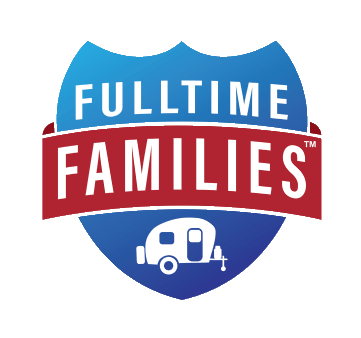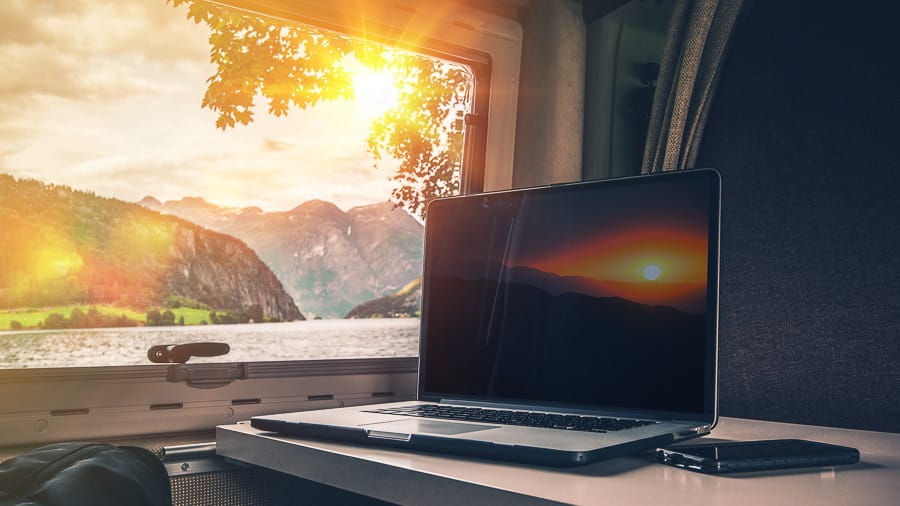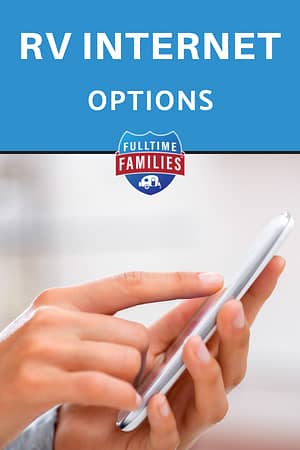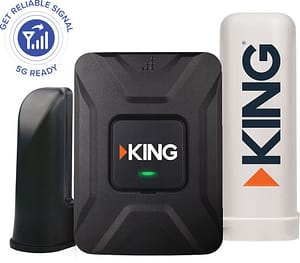A big challenge many people face when hitting the road is finding a way to stay connected to the internet as they travel. Obviously, having RV internet access is important to most people, especially if they work online. A person’s ability to access the internet along the way can often be a determining factor in whether or not they hit the road at all as a full-time RVer.
Luckily, there are ways to access the internet while RVing fulltime. RV internet solutions are not as straightforward as getting internet in a sticks-and-bricks home. However, once you find an option that works well for your family, you’ll be free to roam without sacrificing your internet connection.
Of course, finding the perfect RV internet solutions to fit your needs requires research. That’s why you’re here today. In this article we will discuss the options RVers have for accessing the internet on the road, and how to find the option that’s right for you.
Knowing Your Internet Options
Before making any decisions, you will want to know what all of your choices are. There are three main ways for traveling RVers to get internet access:
- Using surrounding Wi-Fi connections
- Investing in a cellular data plan
- Putting together a satellite setup
Each of these options has pros and cons, and the one you choose will depend on your travel style and what you use your connection for.
Amplifying Surrounding Wi-Fi Connections
Let’s begin by discussing the option of taking advantage of Wi-Fi connections in your area. These might be free internet connections from a coffee shop or library, or you might use a paid connection such as the internet plans many campgrounds offer. One factor to be aware of is that campground Wi-Fi is often not completely reliable due to many users drawing from it at one time. If you do find a campground with great Wi-Fi it is a perfect time to do your backups, and higher usage internet tasks.
Either way, these outside signals tend to be very weak when you wander too far from their source, so connecting in your RV is not always possible with the usual equipment. Fortunately, there is a way to pull these signals in and amplify them, making them fast and usable even for things like streaming.
Building a set-up to pull in free Wi-Fi in your RV can be done fairly easily and inexpensively. The setup described in it will work to pull in signal in a great many locations, but you should be prepared for the fact that this method likely won’t work in very remote places.
Choosing a Cell Carrier and Data Plan

The second option is to pay for a data plan from a cell carrier. This will allow you to access the internet anywhere there is a cell signal. Unfortunately, this isn’t everywhere (yet).
However, there are carriers that offer more coverage area than others, as well as carriers that work better in certain areas than others. To find one that covers all (or even most) of the places you plan to visit, try checking out coverage maps on each carrier’s website. A HUGE tip most veteran fulltime RVer’s will offer is to have more than one carrier as a back up. This increases your coverage and your data limits we will discuss next.
Another thing to consider is cost. Data plans are constantly evolving, which makes it next to impossible for us to maintain an up-to-date list of the best plans. That said, it is helpful to have an idea on what to look for. Keep in mind most carriers offer higher data limits on your devices themselves, meaning if you watch your netflix shows on your phone or tablet instead of using your hot spot data to stream on your tv you might save your hot spot data for other important tasks. Also don’t just look for Wi-Fi from a Jetpack or Nighthawk those devices often have limited data caps before throttling your speeds. You can often add 15GB – 30GB of hotspot data to your phone for just $5-$25/month PER SMARTPHONE! This means if you have 3 smartphones you can add a lot of extra hotspot fairly inexpensively with no extra equipment to purchase.
We can not keep up with all the providers so we have partnered with a couple businesses that can help you get your specific questions answered.
Verizon we now have a partner with Verizon Stores that can help you personally, all you have to fill out this form and they will get back to you promptly to answer your questions and they can even order your plans and equipment. Or shop online.
AT&T our partners at Connected RV can help you just Click here to get in touch with them. Or of course you can always shop online.
T-Mobile we do not have any partners with them, but go ahead and shop online.
The ultimate goal is to get as many gigs of data as possible without breaking the bank. Be sure to check out a phone, tablet, hotspot, and in-car plans. The trick is reading the fine print.
Of course, you’ll want to know what you’re looking for when reading the fine print. Some keywords to keep an eye out for are…
- Throttling — Many “unlimited” plans slow customers to unbearable speeds once they hit a certain threshold. This is called throttling and you want to watch out for it.
- Data cap — A data cap is exactly what you might imagine: a cap on the amount of data you may use. Once you hit that point, you will be paying extra for additional data.
- Network management — Some plans are always under network management, others are only under network management once the user uses a certain amount of data. Network management is different from throttling in that the user isn’t automatically slowed down. Instead, they are given lower priority if they happen to be in an area where many customers are trying to use the same network.
- Hotspot or Tethering — Tethering is the act of using a phone or tablet as a router to connect other devices to the internet. Some plans don’t allow this and only mention it in the fine print, so be sure to look for it.
Other important things to consider are special perks that some carriers offer. For instance, T-Mobile offers Binge On. This service allows the user to stream from most popular video and music services without using any of their monthly data. Obviously, this is a major bonus. Other carriers have different perks, so be sure to look into those as you make your choice.
Leasing a Plan and 3rd Party Plans
If none of the current plans seem appealing to you, you might consider leasing an old unlimited data plan. You see, there once was a time when some carriers offered truly unlimited data. Some people were grandfathered into these plans, and the lines are now offered up for rent. While most of these plans are now capped at 200GB per month rather than being truly unlimited, they do still tend to be an awesome deal for those who use a lot of data.
You do want to be very cautious when looking into these plans as many of them end up violating some terms of service from the carrier powering them. Which means they could shut off suddenly which does happen regularly. You can generally tell which carrier is powering the plan by the name the 3rd party names the plan. For example they will usually name the Verizon the “Red Plan”, AT&T the “Blue Plan” and Tmobile the “Pink Plan” or something similar. If you do plan on getting one of these plans it is generally a good idea to get one that is NOT the same as your smartphone provider. This is so you have increased coverage options again.
Looking to lease a line? Check out Nomad Internet or Unlimitedville. We are not affiliated with either of these providers but know many of members have used them.
Finding Cell Signal
If you choose to use cell signal as your main source of internet, you’ll want to know that you’ll have a connection wherever you travel. If you stick to big cities you shouldn’t have any issues at all, but those who boondock or stay at campgrounds in the middle of nowhere will want to keep an eye on this while planning their travels.
Enter Campendium. This app is the very best way to search for campgrounds and boondocking locations based on available cell service. Sure, you’ll have to make a small in-app purchase, but trust us when we say it’s well worth it.
Boosting Your Cell Connection
Sometimes a place you’re parked will have a very weak signal. This is unfortunate because it makes everything you do online take much longer, and sometimes the connection is so weak you can’t even check your email or load a simple webpage.
To combat this, many RVers use cell signal boosters. These nifty gadgets pull in cell signal and amplify it, giving you the strong connection you need to get things done.
We are sure many of you have heard about cell boosters out there are made by WeBoost. This company offers a number of different gadgets, meaning you can pick and choose what works best for you. Another newer option is King which is very much like the WeBoost Products. King has partnered with us and give our members 15% by using our Link Here and entering the code FULLTIME2020 at check out.
The Scoop on Satellite Internet
Finally, we must address the satellite internet option. Honestly, we only recommend this option if you spend the vast majority of your time boondocking in very remote locations with absolutely no cell signal. While a satellite can provide internet access no matter where you are, it has some major cons.
The first of these cons is cost. Getting set up with satellite internet is extremely expensive, and the monthly costs can be pricey as well. Besides all of that, satellite providers tend to put limits on internet usage just as a cell carrier would. Finally, should anything such as trees, snow, or even rain clouds get in the way of your satellite, your connection will be poor, meaning this isn’t always the most reliable solution.
However, Starlink a brand new low orbit satellite plan has recently made headlines. This is a giant start up company by Elon Musk. They have just announced some of the first details to this plan for beta users, unfortunately it will not be useful for mobile RVer’s at the beginning. But if you are stationary it sounds like it willl be unlimited for $99/month and one time $499 for the equipment you can give it a shot! Of course this product is not out yet and lots can change.
Always Have a Backup Plan
Our best piece of advice when it comes to acquiring internet in your RV? Always have a backup plan. Most RVers have two different cell providers, and many have even more. Combine these with campground Wi-Fi or satellite and you should have internet access everywhere you could possibly want to take your rig.
Join Fulltime Families
Fulltime Families Members get access to the best resources, community and discounts.



